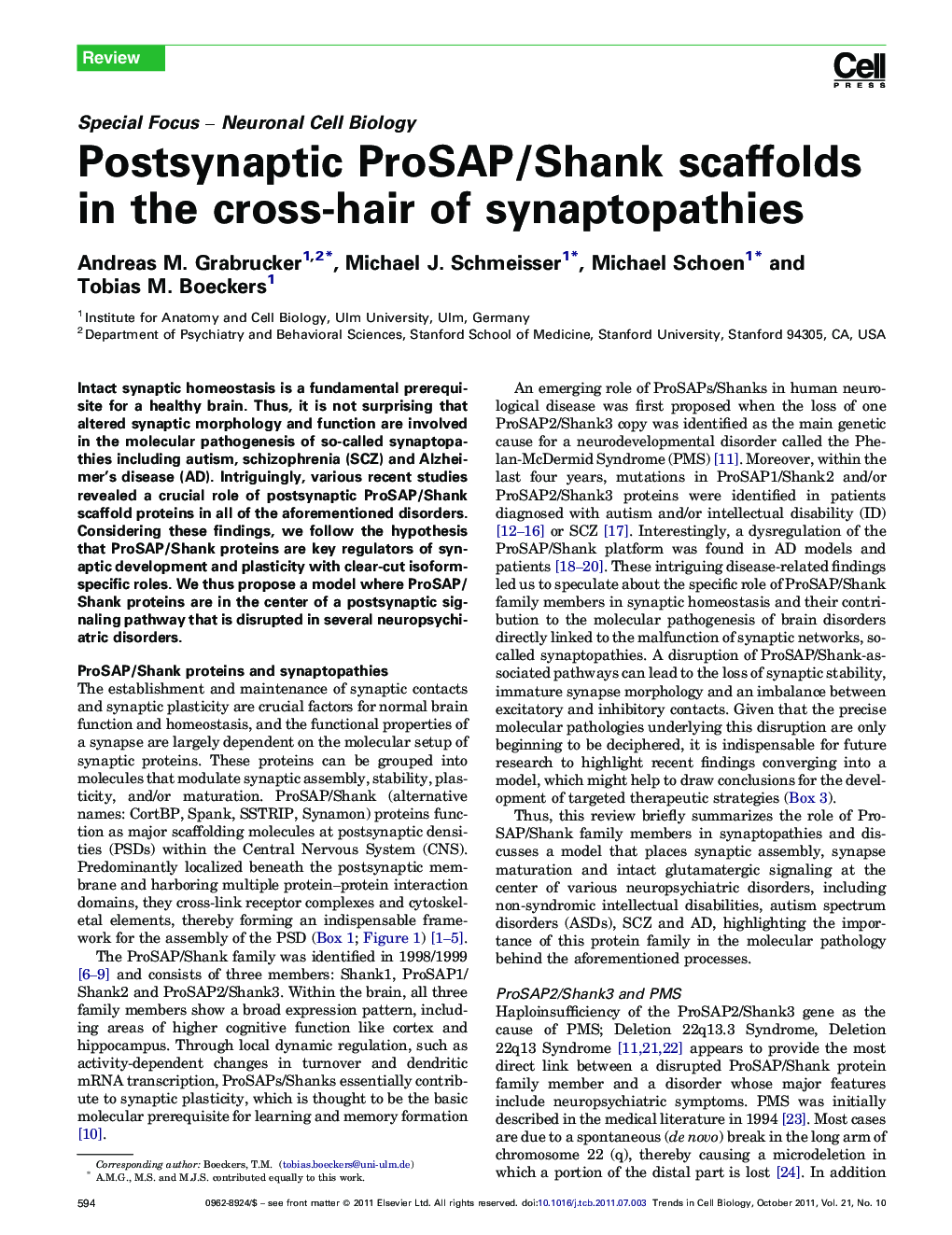| Article ID | Journal | Published Year | Pages | File Type |
|---|---|---|---|---|
| 2204777 | Trends in Cell Biology | 2011 | 10 Pages |
Intact synaptic homeostasis is a fundamental prerequisite for a healthy brain. Thus, it is not surprising that altered synaptic morphology and function are involved in the molecular pathogenesis of so-called synaptopathies including autism, schizophrenia (SCZ) and Alzheimer's disease (AD). Intriguingly, various recent studies revealed a crucial role of postsynaptic ProSAP/Shank scaffold proteins in all of the aforementioned disorders. Considering these findings, we follow the hypothesis that ProSAP/Shank proteins are key regulators of synaptic development and plasticity with clear-cut isoform-specific roles. We thus propose a model where ProSAP/Shank proteins are in the center of a postsynaptic signaling pathway that is disrupted in several neuropsychiatric disorders.
